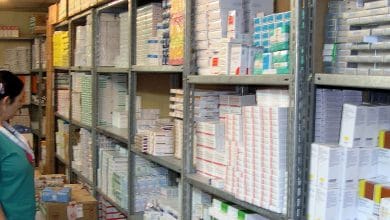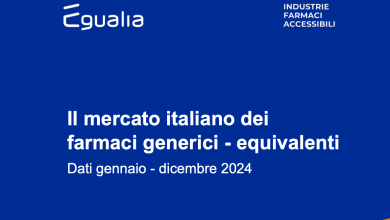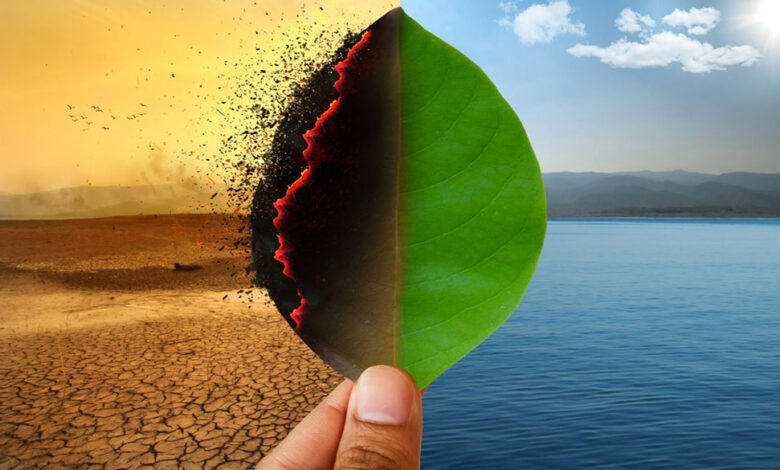
We report the position taken by the group Minds for One Health (M4OH), made up of about sixty experts from various disciplines united by the purpose of protecting ecosystems, the environment in which we live and human health and living organisms.
“We are baffled by the episode that happened in the episode of White paper of 7 June 2022 (RAI3), where a researcher of the authority of Luca Mercalli, president of the Italian Meteorological Society, was forced to abandon the broadcast in the face of an attempt to make the climate crisis appear as a debatable topic on which it is right to take sides politically and make a show, giving space to uninformed and superficial positions, such as those expressed by the journalist Francesco Borgonova, self-declared, moreover, "non-expert".
We are part of the scientific community 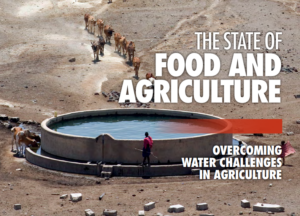 and we undoubtedly share the heartfelt messages of scientific institutions like theIntergovernmental Panel on Climate Change (IPCC), the United Nations body responsible for preparing assessment reports on scientific knowledge relating to climate change, its impacts, associated risks and options for mitigation and adaptation, reviewing and summarizing the work of tens of thousands of scientific studies. Or like the Joint Research Centre of the European Commission, or the Euro-Mediterranean Center on Climate Change, to affirm that the climate crisis is an irrefutably ongoing phenomenon, with devastating effects already detected and documented, such as the increase in the frequency of extreme events, fires, floods, melting glaciers, droughts, famines, infectious and chronic-degenerative diseases and mortality from many causes.
and we undoubtedly share the heartfelt messages of scientific institutions like theIntergovernmental Panel on Climate Change (IPCC), the United Nations body responsible for preparing assessment reports on scientific knowledge relating to climate change, its impacts, associated risks and options for mitigation and adaptation, reviewing and summarizing the work of tens of thousands of scientific studies. Or like the Joint Research Centre of the European Commission, or the Euro-Mediterranean Center on Climate Change, to affirm that the climate crisis is an irrefutably ongoing phenomenon, with devastating effects already detected and documented, such as the increase in the frequency of extreme events, fires, floods, melting glaciers, droughts, famines, infectious and chronic-degenerative diseases and mortality from many causes.
The picture that emerges from the above  documents certifies how at any level (local, Italian, European, worldwide) the actions and policies of intervention, mitigation and adaptation are currently minimally sufficient to face the threat of a global systemic collapse, capable of involving ecosystem balances at all scales, thus opening the door to a collapse of social, health and economic infrastructures, with a consequent threat to the very existence of societies.
documents certifies how at any level (local, Italian, European, worldwide) the actions and policies of intervention, mitigation and adaptation are currently minimally sufficient to face the threat of a global systemic collapse, capable of involving ecosystem balances at all scales, thus opening the door to a collapse of social, health and economic infrastructures, with a consequent threat to the very existence of societies.
We recall that climate change has contributed to reducing water resources by 20% available on the planet in the last 20 years and that the current drought shows us how much this process is underway and capable of having a devastating impact on the entire ecosphere and on our societies.
The scientific world has proven 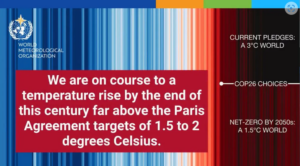 that this crisis is the result of human activities that have caused unprecedented changes on the primary goods and services produced by ecological systems and agricultural systems. These changes have destroyed nature's ability to regulate the environment and ensure climate stability, and human cultures and societies will have to cope with this loss. According to current estimates, more than 75% of natural ecosystems are subject to degradation and loss of their functions, which undermines all efforts to preserve the climate and threatens the achievement of sustainability goals including the eradication of hunger, disease and poverty.
that this crisis is the result of human activities that have caused unprecedented changes on the primary goods and services produced by ecological systems and agricultural systems. These changes have destroyed nature's ability to regulate the environment and ensure climate stability, and human cultures and societies will have to cope with this loss. According to current estimates, more than 75% of natural ecosystems are subject to degradation and loss of their functions, which undermines all efforts to preserve the climate and threatens the achievement of sustainability goals including the eradication of hunger, disease and poverty.
We consider it very dangerous to misinform on this subject, as a trivialization of the problem and a false perception of the real risks could lead the public to think that it is possible to postpone ad libitum the moment of the adoption of measures, individual and collective, necessary to deal effectively with the climate crisis.
It is well established that exposure to extreme heat increases the risk of death for cardiovascular, cerebrovascular, respiratory and all causes diseases. The "Lancet Countdown 2021″ estimated a global record 345,000 heat-related deaths in people over 65 in the year 2019, 80% more than the 2000-05 average. [The 2021 report of the Lancet Countdown on health and climate change: code red for a healthy future, Lancet 2021; 398:1619–62]
We remind you that there are solutions indicated by international agencies such as the International Energy Agency or the European Environment Agency, which would make it possible to immediately reduce energy consumption and therefore climate-altering emissions which are harmful to health. It is solutions that information should deal with, instead of wasting precious time still questioning the existence of global warming and its anthropic origin.
The fact that energy is mainly produced with fossil fuels has caused climate change and the continuous demand for new energy sources is one of the causes of conflicts. Climate change itself can act as a catalyst and turn situations of crisis and tension into wars. This link between climate change and war had already been clearly highlighted by the Nobel Committee in 2007, when it awarded the 'Intergovernmental Panel on Climate Change' (IPCC) and other Al Gore the Nobel Peace Prize.
We reiterate our opposition to coal and gas, as their use causes emissions which, instead of mitigating them, aggravate climate change and cause an unacceptable burden of disease and mortality. The scientific world believes that the transition to renewable sources is immediately feasible, especially if associated with energy savings.
But reducing climate-changing emissions is not enough: We recall the call of other scientists to reiterate that you need to recognize and support the unique role of natural ecosystems in preserving the climate and a vital environment with international climate policy adjustments and fundamental changes in national development strategies. We need to preserve the richness of natural habitats and biodiversity as humanity's top priority and halt their further destruction through the adoption of a global moratorium on any further development of territories as yet untouched by human activities, with international support mechanisms, including funding.
We appeal to the political class not to be responsible for an announced disaster and for which it could be held accountable, and to all conscientious journalists and citizens to be part of this change.
We don't seem to have seen it in the media the interventions (March and April 2022) by the Secretary General of the United Nations Antonio Guterres at the press conference for the presentation of the IPCC AR6 report, therefore we propose the reading of some excerpts.
– I have seen many scientific reports, but nothing like this. Today's report from the IPCC is the infamous indictment of the failure of climate management.
– It is the catalog of empty and shameful promises that are leading us straight towards an unlivable world.
– Science tells us that the world must cut 45% emissions by 2030 and reach net zero greenhouse gas emissions by 2050. But under current commitments, global emissions will grow by almost 14% in the current decade alone. This means catastrophe.
– You cannot trumpet that you are “green” while your plans and projects contradict the net zero goal and completely ignore the emissions cuts that need to be made this decade.
– Glasgow's pledge on finance for adaptation is not enough to address the challenges facing nations on the front lines of the climate crisis.
– I know that everywhere people are prey to anxiety and anger. So am I. Now is the time to convert anger into action. Every fraction of a degree matters. Every voice can make a difference, and every second counts.”
The document is endorsed by the Interdisciplinary Group of Experts on Environment and Health Minds for One-Health:
- Simona Agger (architect, SIAIS and HCWH),
- Umberto Agrimi (veterinary surgeon Dir. Food safety, nutrition and veterinary public health ISS),
- Paolo Barberi (agronomist, professor of Agroecology, Scuola Superiore Sant'Anna of Pisa),
- Dusca Bartoli (occupational doctor),
- Ugo Bardi (professor, University of Florence),
- Giulio Betti (meteorologist, LAMMA-IBE/CNR),
- Annibale Biggeri (professor of medical statistics Dept. of cardio-thoracic vascular sciences and public health University of Padua),
- Lucia Bisceglia (AReSS Puglia epidemiologist, president of the Italian Epidemiology Association),
- Antonio Bonaldi (doctor, past president of Slow medicine),
- Claudio Caprara (Public Health doctor, Bologna),
- Mario Carmelo Cirillo (formerly ISPRA engineer),
- Martina Consoloni (anthropologist and PhD student at the University of Bologna),
- Paolo Crosignani (doctor, ISDE),
- Daniela D'alessandro (professor at La Sapienza University of Rome),
- Elisabetta Dall'Ò (anthropologist, University of Turin and Turin Polytechnic),
- Gianluigi De Gennaro (chemist, professor at the University of Bari),
- Aldo Di Benedetto (doctor, former Ministry of Health),
- Roberto Danovaro (professor at the Marche Polytechnic University),
- Rosella Ferraris (former professor of business economics University of Pisa),
- Carlotta Fontana (Full Professor of Architecture Technology at the Milan Polytechnic),
- Francesco Forastiere (epidemiologist, CNR),
- Andrea Gardini (doctor, Slow Medicine),
- Claudio Giannoti (surgeon, ISDE),
- Francesco Giorgelli (biologist, Department of Pharmacy, University of Pisa, Vice President of the Guarantee Committee),
- Francesco Gonella (full professor of Physics at the Ca' Foscari University of Venice, expert reviewer for the IPCC),
- Michele Grandolfo (Epidemiologist, former ISS research manager),
- Paolo Lauriola (RIMSA epidemiologist),
- Miriam Levi (Medical Epidemiologist),
- Tommaso Luzzati (economist, professor at the University of Pisa),
- Carmine Ciro Lombardi (chemist and pharmacological technologist, Tor vergata UNI Rome),
- Alberto Mantovani (toxicologist, formerly ISS),
- Maria Teresa Maurello (Public Health doctor),
- Daniele Menniti (Full Professor of Electrical Energy Systems Department of Mechanical, Energy and Management Engineering University of Calabria),
- Paola Michelozzi (epidemiologist, Department of Epidemiology SSR Lazio),
- Lucia Miligi (epidemiologist, ISPRO FI),
- Eduardo Missoni (Professor, saluteglobale.it),
- Carlo Modonesi (biologist, ISDE Scientific Committee),
- Luigi Montano (UroAndrologist ASL Salerno, EcoFoodFertility Project),
- Vitalia Murgia (medical, CESPER),
- Francesca Pacchierotti (biologist, former ENEA),
- Lorenzo Pagliano (physicist, Associate Professor Building Physics Politecnico di Milano),
- Pietro Paris (engineer, formerly ISPRA, member of the Risk Assessment Committee for the European Chemicals Agency),
- Maria Grazia Petronio (doctor, professor in charge of Organization of prevention and health promotion University of Pisa),
- Daniela Pedrini (engineer, IFHE President, SIAIS President),
- Antonio Pileggi (lawyer, full professor at the Faculty of Economics, Tor Vergata University in Rome),
- Paolo Pileri (Professor of Environmental Territorial Planning at the Milan Polytechnic),
- Paolo Rognini (Professor in charge of Environment and Human Behavior, Master's Degree Course in Environmental Sciences, University of Pisa),
- Francesco Romizi (journalist),
- Roberto Romizi (doctor, ISDE),
- Tiziana Sanpietro (doctor, former CNR Pisa),
- Alfonso Senatore (associate professor, Department of Environmental Engineering University of Calabria),
- Laura Senatori (chemist, formerly ARPAT),
- Marco Talluri (environmental journalist, formerly ARPAT),
- Filippo Taglieri (Re-Common),
- Gianni Tamino (biologist, formerly UNI PD),
- Antonio Tricarico (Re-Common),
- Mauro Valiani (occupational doctor),
- Sandra Vernero (doctor, President of Slow Medicine),
- Maria Angela Vigotti (epidemiologist, former University of Pisa),
- Paolo Vineis (epidemiologist, Imperial College London),
- Federico Zanfi (associated professor in urban planning Dept. of Architecture and Urban Studies at the Milan Polytechnic),
- Giorgia Zanutto (doctor, "Environment, Climate and Health" Working Group of the SItI Board of Residents),
- Giorgia Zanutto (doctor, "Environment, Climate and Health" Working Group of the Consultation of SItI Residents).
This document does not necessarily express the position of the institutions of origin of the authors.
Source: Environment and more
Editor's note - Reporting, beyond personal opinions, which we do not want to hide, a document from a panel of expert scholars on a topic of great impact on public health, not only has a scientific, civic and social value but also refers us to an extremely current issue of scientific communication. The media too often propose situations in which the opinions of the scientist and the man on the street are confronted on the same level (to simplify precisely).
On such complex issues, the risks, in terms of public opinion, are enormous. We touched them firsthand in the Covid era, but the vice is perpetuated to the full advantage of ratings, clicks and likes.
An alarm bell that keeps ringing….




